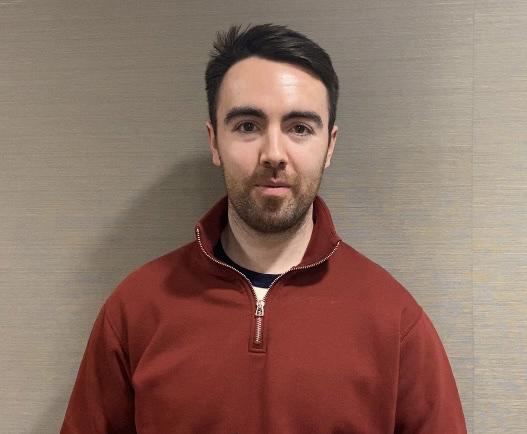Oisín Fearon, deputy chair of the Northern Ireland resident doctors committee, was a fourth year medical student when COVID arrived and began work as a doctor just as the Delta wave of COVID surged.
‘I found the workload suffocating and struggled with burnout’

‘When COVID began to spread in early 2020 my colleagues in fifth year were called up early to the medical profession while we assisted enthusiastically as “medical student technicians”. Thankfully the initial first wave did not overwhelm us as much as had been anticipated.
‘However, when I started work in July 2021 as an F1 doctor, the Delta wave started to surge. The first year of being a doctor is always difficult, but having the extra COVID pressures – with surging patient numbers and staff shortages due to sickness and isolating – made it overwhelming.
‘I found the workload suffocating and struggled with burnout. I lost almost two stone due to not getting time to stop to eat during my shifts and then being too stressed to eat properly post-shift. Every moment of my day – awake and asleep – was consumed by work.
‘This exposure to such levels of sickness and mortality definitely took its toll on the doctors, nurses and all the staff in the healthcare service. All while out of work, our usual social support systems were suppressed due to the shielding and distancing.
We aren’t even prepared to function day to day
‘During the pandemic the inadequacies of our healthcare system were clearly illustrated. Decades of poor planning and policies were laid bare. The “post-COVID” era (though COVID is still here) has also shown how the healthcare system here may have “survived” but it is very much maimed.
‘Doctors have clearly not been valued or prioritised by Government and policy makers since COVID; you can see this by the current agenda of replacing doctors with less-trained staff, while doctors cannot get training places or jobs, all against the background of increased pay erosion. This illustrates how momentary the Government’s graces were for medical team’s efforts in the pandemic.
‘I was asked to reflect on how we can prepare for the next pandemic. We aren’t even prepared to function day to day presently. There are many things which need to be done, and from a medical team’s perspective we need to increase the value placed on our staff. This can be done by increasing training places for doctors to progress so they can better serve the needs of the population. Reverse years of pay erosion and fix current conditions to encourage doctors to stay here, not travel halfway around the world for better wages and welfare.
‘To function in a pandemic we need to fix the glaring inadequacies in the existing service before we can think of how to scale up.’

